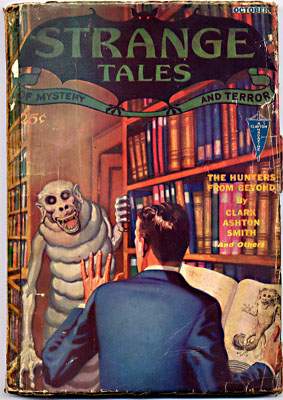Writing the literature review for an academic article

Part of any academic article or thesis is the literature review. In Thailand, the first thing to remember is that the word “literature,” when used to describe previously published books and articles on any subject, is singular. That means we refer to the “literature” on a topic even when many examples exist. In Thai English, people often say the “literatures” but like much of Thai English, this is incorrect and unidiomatic. So you will be writing a literature review and not a “literatures” review.
The TU Libraries have a number of book-length guides to writing a literature review, and given how often these are borrowed, they are clearly popular:
However, you may find that it is not necessary to read a whole book in order to be able to put together a literature review. The main points of the literature review are to show that you:
- have some awareness of the field you are studying, and that you are up-to-date with what has been published on a given subject.
- are able to sift through what has been published and divide what is important from what is less important.
- can tell what is lacking in past research. This can mean following up another writer’s advice about future research, listening to your ajarn’s advice, or other ways of finding interesting approaches which have not yet been taken.
Be modest.
Unless you really feel you have invented a new Theory of Relativity that makes you a new Albert Einstein, it is better not to claim too much in the beginning of your literature review. Instead of saying that your paper will solve a problem, you might say instead that it will address a problem. It is usually wiser, and more modest, to state that you are asking a question, rather than claiming to answer it.

Respect other peoples’ time.
Keep in mind that a major part of your literature review is simply to convince people that reading your article or thesis might be worthwhile. The reader probably does not know you and you have to prove that you are aware of the subject and you have read things that other people who are interested in the subject are familiar with. If you do not make this clear, a skeptical reader may think you are just a know-nothing who is making exaggerated claims based on lack of familiarity with the field.
With a literature review, you immediately put your own work in perspective, showing that it relates to what is already going on in your subject, and somehow complements other things valued by specialists. Why you ask certain questions and not others, as well as what your research hopes to achieve, are important points to make clear to anyone who is contemplating spending time reading what you have written.
A literature review can be a work-in-progress.
If you are writing a short article, then a literature review is not a very time-consuming matter. For a thesis that takes many months or even years to complete, you will want to check again for sources relevant to your work, just in case something has appeared that is directly linked to what you are researching. Different fields of research move at different speeds, but it is likely that if you began a doctoral thesis last year, by now there may be something of direct relevance newly published in your area of interest that would be important to cite. Who knows, it may even support your own arguments. Being up to date in your literature review also shows that you are an actively thinking person and did not become brain dead when you began writing your thesis.
Who can help?
As always, our friendly and informed university librarians in specialized libraries can offer tips and pointers about where to look for literature to cite. Your ajarns and smarter fellow students can also be a good source of ideas. Our library catalogue offers the useful Zotero and EndNote programs for collecting research sources which must be used patiently and with a critical mind. They are like the spell check program on Word documents, where lots of suggestions will be made to you and it is up to you to decide which ones are what you need. Like most computer programs, they can take a little time to become familiar with, but they can save a lot of time later on with sources and footnotes, especially for theses, so take a look at them. You can decide whether you prefer Zotero to EndNote, or want to use both.
Be specific.
When you look for sources to cite, try to find as many things in common between your subject at hand and what has been published previously. Try not to waste too much time on general studies that are not directly relevant to your own work. Remember that vast amounts of material are published every year, so you must be very selective. If you offer a long-winded and uncritical bibliography, your readers will not applaud you for your hard work, they will just think you are long-winded and uncritical. Busy readers appreciate it when you show that you respect their time by keeping things as concise as possible.
Follow the example of the best ajarns.
If a brilliant article by an ajarn has inspired you to research in the same or a similar field, be sure to fully investigate that source’s bibliography. Also visit our libraries and look at individual copies of journals. While searching online can save you a trip to the library in many cases, actually flipping through a journal to look at abstracts can give you a feeling for writing and researching that cannot be obtained merely by doing internet searches.

How to organize it all.
When you have a group of articles, books, or other materials on your subject and are ready to think about presenting it, look at each item and ask what you personally have to say about it. Why are you including it in the list? If you cannot think of a good reason to include it, then quite possibly it is better to leave it out. If you can say something substantial about the article or book, why it is important, or why it relates to your field of inquiry, then you can be sure that this source has a place in your literature review.
Most writers find it clearest to present a literature review by year, beginning with earliest studies and ending with most recent ones. Yet there are other valid ways to offer this material, such as by subject or theme, even if this can be a more complex approach. Look at the literature reviews in articles which you have found useful or which your ajarn has recommended to you. See how they succeed in transmitting the information and decide whether this approach would suit you as well. If you are writing about a controversial subject where previous articles with different points of view have appeared, you may decide to group your literature review according to these distinct viewpoints.
What is good? What is not so good?
After you have started to assemble your sources for your own writing (see part A of this blog entry), one of the most challenging problems arises, separating the useful from the less useful. No one thinks that every published book or article is correct and should be believed, but you must decide for yourself what is most impressive about past publications, and describe what that is in a few words. It is not enough that the research you admire was written by someone who won a Nobel Prize or teaches at Harvard or Yale. It is essential that the findings in question are based on solid data that can be verified.
Why do you believe one author and not another?
When you give more weight to one finding rather than another, be sure you are basing your own judgment on what might be called “objective” criteria. In other words, you are not just happy when you read something you agree with. Try not to panic or assume the writer is not objective. There may be something of value in the arguments presented that you may use in your own discussion of the literature.
If you disagree, say so.
If you find an article that draws conclusions which you are convinced are wrong or badly documented, don’t be afraid to say so. Politeness does not require that we respect bad research. In any subject, an article or book sometimes appears which is invalidated by later research. Do not waste too many words on such failed efforts, or it will look to the reader as if you are giving them more time and respect than they deserve.

(all images courtesy of Wikimedia.com)
